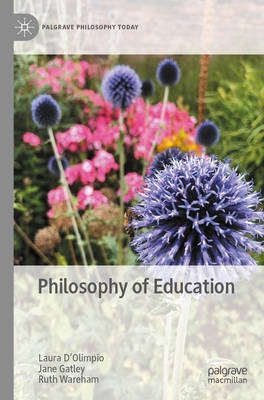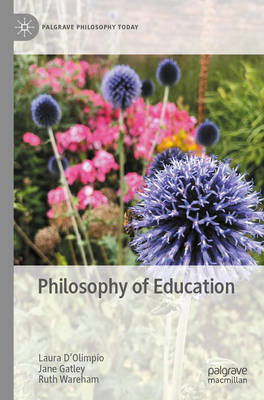
Bedankt voor het vertrouwen het afgelopen jaar! Om jou te bedanken bieden we GRATIS verzending (in België) aan op alles gedurende de hele maand januari.
- Afhalen na 1 uur in een winkel met voorraad
- In januari gratis thuislevering in België
- Ruim aanbod met 7 miljoen producten
Bedankt voor het vertrouwen het afgelopen jaar! Om jou te bedanken bieden we GRATIS verzending (in België) aan op alles gedurende de hele maand januari.
- Afhalen na 1 uur in een winkel met voorraad
- In januari gratis thuislevering in België
- Ruim aanbod met 7 miljoen producten
Zoeken
Omschrijving
This textbook provides an up to date, accessible introduction to the philosophy of education with a focus on the conceptual and normative questions raised by educational policy and practice. The key concepts explored include learning, teaching, indoctrination, knowledge, equality, intelligence, virtue, and rights. Clarifying the meanings of these terms is vital for educators to be able to explain what they do and why. Such conceptual analysis helps us to address normative questions about what should or should not be done, educationally speaking. Each chapter firstly examines one key concept which is then connected to a theorised aim of education. The aims considered are rationality (i.e. critical thinking), knowledge, social justice, vocational preparation, flourishing, and political participation (citizenship). These aims of education are all hotly debated, so their strengths and weaknesses are considered. Each chapter concludes with a third section connecting the key concept and aim of education under discussion to an applied example. The applied examples include religious schools, attainment gaps in education, the educational impact of the coronavirus pandemic, the curriculum, teaching ethics in schools as a form of moral education, and citizenship education. These applied examples are drawn from vital social and political issues within education. By critically engaging with and then building upon extant literature, this book demonstrates how conceptual and normative issues within education have real world implications. At the end of each chapter, there are pedagogical resources designed to support teachers and students. These include a chapter summary, a list of recommended and further readings and online resources, as well as a list of study and research questions. This book is essential reading for all undergraduate and postgraduate students of the philosophy of education. It is also ideal for use on education theory courses and will be of interest to those studying philosophy or education.
Specificaties
Betrokkenen
- Auteur(s):
- Uitgeverij:
Inhoud
- Aantal bladzijden:
- 159
- Taal:
- Engels
- Reeks:
Eigenschappen
- Productcode (EAN):
- 9783031864735
- Verschijningsdatum:
- 2/10/2025
- Uitvoering:
- Paperback
- Formaat:
- Trade paperback (VS)
- Afmetingen:
- 157 mm x 236 mm
- Gewicht:
- 263 g

Alleen bij Standaard Boekhandel
+ 117 punten op je klantenkaart van Standaard Boekhandel
Beoordelingen
We publiceren alleen reviews die voldoen aan de voorwaarden voor reviews. Bekijk onze voorwaarden voor reviews.









